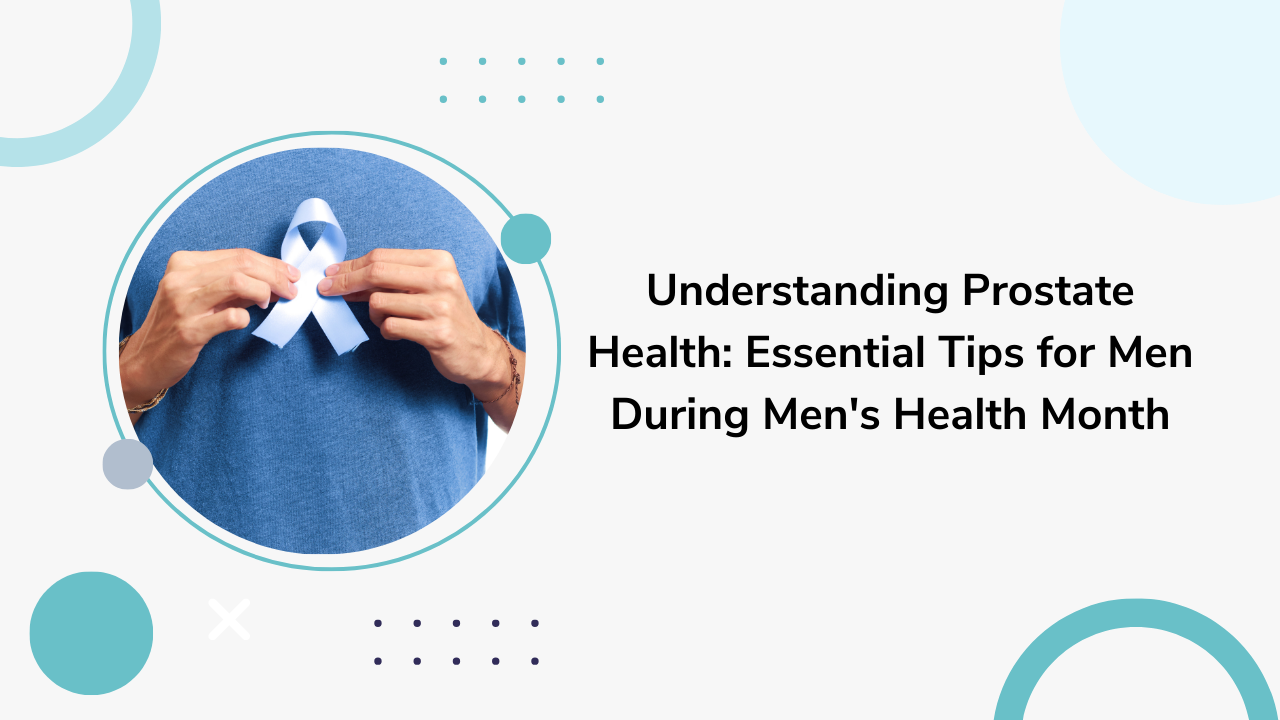June is Men’s Health Month, a perfect time to focus on various aspects of men’s health, including a vital yet often overlooked component: prostate health. The prostate is a small gland located below the bladder and in front of the rectum, playing a crucial role in male reproductive health. Understanding how to maintain a healthy prostate can prevent numerous health issues and improve overall well-being.
What is the Prostate?
The prostate is responsible for producing seminal fluid, which nourishes and transports sperm. As men age, the prostate can become susceptible to various conditions such as prostatitis (inflammation of the prostate), benign prostatic hyperplasia (BPH, or enlarged prostate), and prostate cancer. Recognizing symptoms and implementing preventive measures can significantly impact men’s health.
Common Prostate Issues
- Prostatitis: This condition involves inflammation of the prostate and can cause pain, urinary issues, and sexual dysfunction. It can be bacterial or non-bacterial.
- Benign Prostatic Hyperplasia (BPH): BPH is a non-cancerous enlargement of the prostate that can lead to urinary problems like frequent urination, difficulty starting and stopping urination, and a weak urine stream.
- Prostate Cancer: One of the most common cancers in men, prostate cancer can be slow-growing or aggressive. Early detection through screening is crucial for successful treatment.
Essential Tips for Prostate Health
- Regular Screening: Early detection is key in managing prostate health. Men over 50, or those over 40 with a family history of prostate issues, should discuss screening options such as the prostate-specific antigen (PSA) test and digital rectal exams (DRE) with their healthcare provider.
- Healthy Diet: A diet rich in fruits, vegetables, and healthy fats can promote prostate health. Foods like tomatoes (rich in lycopene), broccoli, green tea, and fish high in omega-3 fatty acids are particularly beneficial.
- Exercise Regularly: Physical activity helps maintain a healthy weight and reduces the risk of prostate problems. Aim for at least 30 minutes of moderate exercise most days of the week.
- Maintain a Healthy Weight: Obesity is linked to an increased risk of prostate problems, including BPH and prostate cancer. Combining a healthy diet with regular exercise can help manage weight effectively.
- Limit Alcohol and Caffeine: Reducing the intake of alcohol and caffeine can help minimize urinary symptoms related to BPH.
- Stay Hydrated: Drink plenty of water, but reduce fluid intake in the evening to decrease nighttime trips to the bathroom.
- Don’t Smoke: Smoking is associated with an increased risk of many cancers, including prostate cancer. Quitting smoking can significantly improve overall health.
- Manage Stress: Chronic stress can negatively impact prostate health. Practices such as yoga, meditation, and deep-breathing exercises can help manage stress levels.
Understanding Symptoms
Being aware of symptoms related to prostate problems is crucial. Common symptoms include:
- Frequent urge to urinate, especially at night
- Difficulty starting urination
- Weak or interrupted urine flow
- Pain or burning during urination
- Blood in urine or semen
- Painful ejaculation
- Persistent pain in the lower back, hips, or thighs
If you experience any of these symptoms, consult a healthcare provider for a thorough evaluation.


